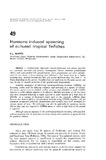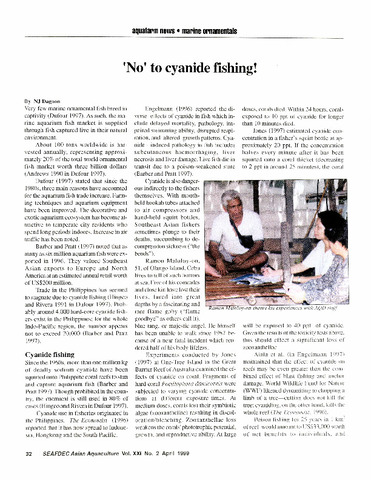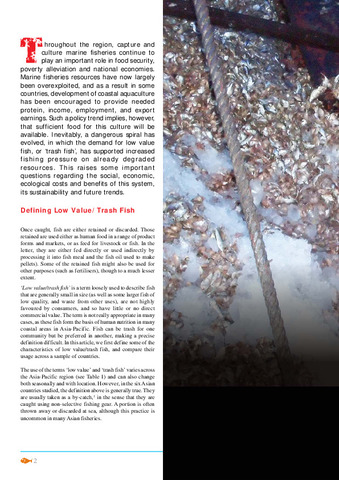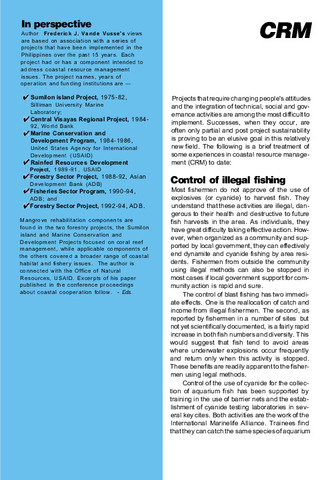Hormone-induced spawning of cultured tropical finfishes
Share
Abstract
Commercially important tropical freshwater and marine finfishes are commonly spawned with pituitary homogenate, human chorionic gonadotropin (HCG) and semi-purified fish gonadotropins. These preparations are often administered in two doses, a lower priming dose followed a few hours later by a higher resolving dose. Interval between the first and second injections may vary from 3 - 24 hours depending on the species. Variable doses are used even for the same species and may be due to variable potencies of the gonadotropin preparations.
Synthetic analogues of luteinizing hormone-releasing hormone (LHRHa) are becoming widely used for inducing ovulation and spawning in a variety of teleosts. For marine species such as milkfish, mullet, sea bass, and rabbitfish, a single LHRHa injection or pellet implant appears to be effective. Multiple spawnings of sea bass have also been obtained following a single injection or pellet implant of a high dose of LHRHa. In a number of freshwater fishes such as the cyprinids, LHRHa alone however has limited efficacy. Standardized methods using LHRHa together with the dopamine antagonists pimozide, domperidone and reserpine have been developed for various species of carps. The technique may also be applicable for spawning marine teleosts that may not respond to LHRHa alone or where a high dose of the peptide is required.
Although natural spawning is the preferred method for breeding cultivated fish, induced spawning may be necessary to control timing and synchrony of egg production for practical reasons.
Suggested Citation
Marte, C. L. (1990). Hormone-induced spawning of cultured tropical finfishes. In Advances in tropical aquaculture : workshop at Tahiti, French Polynesia, February 20-March 4, 1989 (pp. 519–539). Plouzane, France: IFREMER.
Subject
Collections
Related items
Showing items related by title, author, creator and subject.
-
'No' to cyanide fishing!
Dagoon, N. J. (Aquaculture Department, Southeast Asian Fisheries Development Center, 1999) -
Prized commodity: Low value/trash fish from marine fisheries in the Asia-pacific region
Staples, Derek; Funge-Smith, Simon (Secretariat, Southeast Asian Fisheries Development Center, 2005)The use of the terms 'low value' and 'trash fish' varies across the Asia-Pacific region and can also change both seasonally and with location. This article defines low value/trash fish as 'Fish that have a low commercial ... -
CRM in the Philippines: Lessons learned
Southeast Asian Fisheries Development Center, Aquaculture Department (Aquaculture Department, Southeast Asian Fisheries Development Center, 1996)Philippine coastal communities can become capable fishery resource managers and that their management practices can become largely self-sustaining if the project approach focuses on assisting fishermen to learn how to help ...





